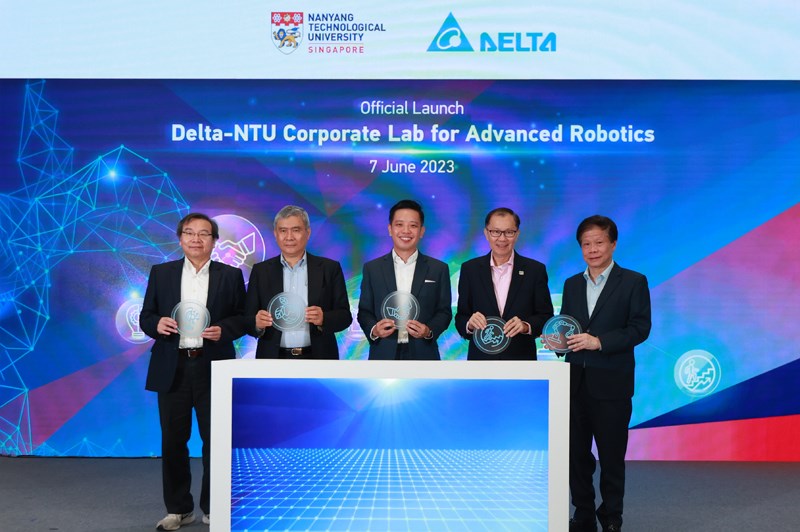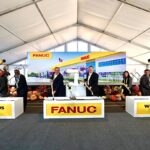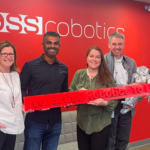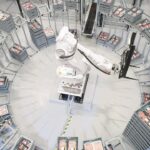ASIA ELECTRONICS INDUSTRYYOUR WINDOW TO SMART MANUFACTURING
Delta, NTU Put up New Advanced Robotics Lab in Singapore
Nanyang Technological University (NTU Singapore) and Delta Electronics Co., Ltd. have established the S$24 million Delta-NTU Corporate Lab for Advanced Robotics in Singapore. This partnership is a continuation of their close collaboration in research & development for advanced technologies.

The new lab is supported by Singapore National Research Foundation’s Research Innovation and Enterprise (RIE) 2025 plan. Specifically, it will develop over three years next-generation technologies aimed at overcoming labor shortage challenges for the manufacturing and intralogistics industries. Intralogistics is the logistical flow of goods and materials that take place on a company’s site.
Collaborative robotic systems are set to become a staple as businesses transit into Industry 5.0. Moreover, the world grapples with a manpower crunch arising from an aging workforce and declining birth rates. Such systems include human-touch-inspired robots that can adjust their grip to pick up a range of materials. They can be fragile glassware to volatile chemicals, smart sensing, radar, and 3D sensors systems, which allow autonomous mobile robots (AMRs) to operate in a dynamic environment with human traffic like hospitals and warehouses.
They launched the joint lab on June 7. Specifically, the ceremony was attended by Minister of State for the Ministry of Trade & Industry, Mr. Alvin Tan; NTU President Professor Ho Teck Hua, and Delta Electronics Chairman, Mr. Yancey Hai.
Professor Ho said: “This corporate lab with Delta Electronics proves that NTU’s research activities are industry relevant. The lab creates opportunities for us to translate our research into impactful, real-world innovations. This is in line with the NTU 2025 strategic vision, to harness the power of digital and advanced technologies to support the discovery of new knowledge and promote better learning and living experiences.”
Yancey Hai, Chairman, Delta Electronics, Inc., underscored: “We are honored to further our long-term cooperation with NTU following the success in the field of cyber-physical systems; especially as our new joint Delta-NTU Corporate Lab for Advanced Robotics has earned the support of Singapore’s RIE 2025 initiative. We intend to leverage Delta’s smart manufacturing prowess and AMR know-how, as well as our Delta-NTU R&D talent to develop essential technologies for the next-generation of AMRs. The innovation milestones of this lab will help multiple industries solve key challenges, enhance Singapore’s long-term resilience, and improve the quality of life of its citizens.”
Deepening Collaboration
In particular, the establishment of the joint lab marks a new phase of the partnership between NTU and Delta Electronics.
In 2016, the Delta – NTU Corporate Laboratory for Cyber-Physical Systems was launched with a focus on using cyber-physical systems. Specifically, it aims to build technological capabilities for use in Smart Manufacturing and Smart Learning. In 2018, the lab was expanded to accommodate more research activities.
Meanwhile, the first chapter of the collaboration was a success. Over five years, the team filed 17 patents, of which eight have been issued. Also, it submitted over 200 papers to journals and conferences. Moreover, it supported more than 140 NTU research staff and graduate students, as well as scientists and engineers from the Delta Research Centre in Singapore.
Among the notable projects include a universal smart navigation system where logistics robots autonomously move goods around factory floors. Also, a learning analytics technology to improve learning effectiveness in the education industry was developed. These innovations, which were test bedded on NTU’s Smart Campus, are now being scaled up for wider adoption in the industry.
Tzi-cker Chiueh, General Director of the Delta Research Centre, said: “We have secured various patents through our collaboration with NTU Singapore. These achievements demonstrate the high potential for commercialization of the technologies we have developed together. Some of these patents relate to 3D mapping and localization for automated guided vehicles, human tracking and re-identification, and robotic arm manipulation techniques. This intellectual property will serve as a solid foundation for this new lab, and thus, we look forward to working together to meet the complex needs of several industries.”
Meanwhile, Co-Director of the Delta-NTU Corporate Lab for Advanced Robotics, Associate Professor Andy Khong, said: “Encouraged by the strong foundation laid in NTU’s initial collaboration with Delta Electronics, we are now ready to deepen the partnership by moving into research & development for advanced robotics. The joint research team aims to develop cutting-edge solutions that can address real-world challenges in a sustainable manner, in line with NTU’s Sustainability Manifesto, which aims to strengthen global partnership for sustainable development.”
For his part, Professor Quek Tong Boon, Chief Executive of the National Robotics Programme (NRP), said: “The National Robotics Programme welcomes this NTU-Delta partnership and looks forward to the build-up and commercialization of more differentiated robotics capabilities for the manufacturing and logistics domains in Singapore and beyond. We hope to see more of such Institutes of Higher Learning -Industry collaborations, which form an integral part of our growing robotics ecosystem.”




